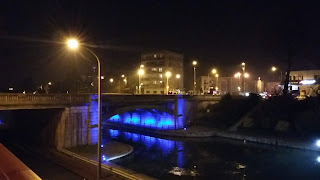We grieve because we love.

I have just returned from my sixth trip volunteering in Calais to alleviate the suffering of the refugees there. The following contains my initial reflections on the experience. We all build narratives in order to make sense of the world and to interact with others in it. But it is important to remember that the narratives are superimposed, that they come from one particular vantage point and that they have arbitrary starting and finishing points. Take the refugee situation in Calais. Is it just about Calais? Not really, no. Every time there is an eviction in Paris or Brussels, a few days later there is a wave of new arrivals in Calais. Paris and Brussels have their own inbound streams of influence. And every time refugees are forcibly evicted Calais by night from Calais, as many were this week, the problem is simply exported to another French location. It's also about the UK because it is our border. Historical decisions about where to put the border places the...